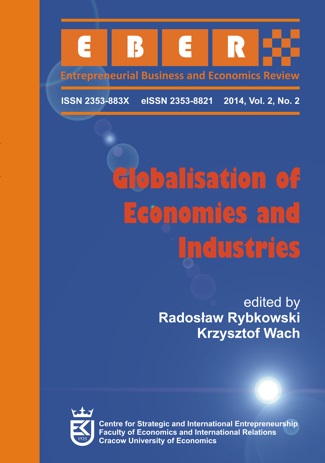Alternative Approaches in Evaluating the EU SME Policy: Answers to the Question of Impact and Legitimization
Alternative Approaches in Evaluating the EU SME Policy: Answers to the Question of Impact and Legitimization
Author(s): Robert K. GruenwaldSubject(s): Economy
Published by: Uniwersytet Ekonomiczny w Krakowie
Keywords: evaluation; SME policy; EU entrepreneurship; economic policy; cost-benefit ratio
Summary/Abstract: The objective of the paper is the determination and criticism of existing EU SME Policy evaluation standards and of existing alternatives enabling the discussion of improvements. The paper uses a comparison of different evaluation methods applied by the OECD, the EU and Sweden and of funding programmes provided by KfW and the German Ministry of Economics; therefore, the paper is an explorative case study. Findings: OECD and EU evaluations do not determine causal relationships between funding allocation and effects. The evaluations of the KfW and the German Ministry of Economics use an empirical quantitative approach and determine direct causal relations. In order to fulfil the requirements of legitimizing functions for the SME policy, it is recommended to further develop the EU funding policy and evaluation according to the “German model” both in terms of the institutional framework and in terms of the evaluation of impacts through funding policy measures. Definition of minimum requirements and alternative possibilities for EU SME policy evaluation in order to close the legitimisation gap between the allocation of tax money and impact proof (cost-benefit ratio).
Journal: Entrepreneurial Business and Economics Review
- Issue Year: 2/2014
- Issue No: 2
- Page Range: 77-88
- Page Count: 11
- Language: English

